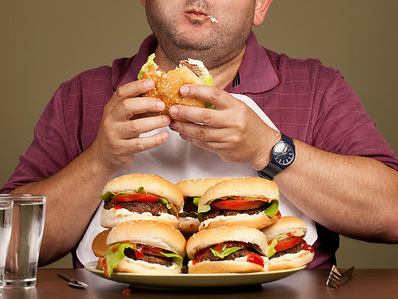|
In media, we hear about anorexia and bulimia but what about everything else in between? Disordered eating refers to a wide range of abnormal eating behaviours, many of which are shared with diagnosed eating disorders. The main thing differentiating disordered eating from an eating disorder is the lesser severity and frequency of behaviours. Skipping meals, following fad diets, calorie counting, fasting, binging and obsessing over the scale all are common behaviours. Emotional eating and binge eating are brutal habits to break. Many of us will experience some sort of binging episode at a point in time even if it doesn’t develop into a full blown eating disorder. The truth is that society puts pressure on us to look a certain way or be a certain weight, and we turn to experiment with drastic dieting strategies with major restrictions. These restrictions ultimately set us up to fail and binge on the forbidden foods. The trick is breaking that cycle and building a better relationship with food. 1) CHANGE YOUR DIET MENTALITY Following a black-and-white approach to nutrition, where certain foods are labelled off limits, is setting yourself up for binging on all those restricted foods. Many of us get caught up in counting calories and hitting macro goals our willpower gets channelled beyond its capacity. Instead, try to take a break from the counting game to set yourself up for long term success. Simple nutrition guidelines to try:
Know that you cannot break all emotional eating and binging in a single day. We all want that quick-fix but that isn’t the way we will ultimately be successful. If you have a bad day, don't freak out. A lot of the progress will be two steps forward, one step back, not a straight forward thing. The most important thing to remember is to stay consistent and use positive momentum to build new habits. 3) TRAIN TO GET STRONG, NOT SHREDDED A common trend among binge-eating habits is workouts revolving around burning as many calories as possible. The problem? This creates negative feelings towards working out, making gym sessions more like a form of punishment. In order to break the cycle, that negative mentality must change. Stop using workouts as punishment and start making them about becoming the strongest version of yourself. Don't worry about burning calories, and instead focus on your performance and what your body is capable of.  4) Stay off the scale Many people who battle binge eating also weigh themselves frequently. Get off the scale. That number does NOT indicate your self-worth. That number does not tell you what’s really going on with your body. It does not indicate your success because as there are so many factors that an influence that number, making it a liar of what actually is occurring. Instead focus on how your clothes fit, how you look in the mirror and the confidence you exude. 5) Learn to listen to your body This may seem common knowledge, but most of us need to relearn how to identify physical hunger. Our body’s signals can often become muddled amidst our emotions, schedule and social life. When you eat, try slowing it down and savouring your food. Listen to your body’s signals and identify when you’re satisfied. Make an effort to stop eating when you’re satisfied, but not overly stuffed. Eat the foods that make you feel best and cut back on those that don’t. Learn to identify physical hunger as your body is smart and can tell you exactly what it needs. Alysha Coughler, RD, Sports Dietitian, MHSc, PTS Sports Dietitian at Evolved Sport and Nutrition Complete Lifestyle Management
2 Comments
Goal setting is a critical part of enhancing your fitness and/or performance. It can be anything from working towards getting a PR in your next road race, losing inches on your waist, or simply feeling better. Planning out the finer details of your personal goals is essential. If you don’t map out your route, chances are you won’t get to the finish line. If you are having a tough time doing what you set out to accomplish, below could be some reasons why and how to work through them: Your goal is too far-fetched Sure we’d all love a six pack of abs for breakfast, but if you are not prepared to do what is necessary to get those ripples then the dream won’t come true. Be honest and ask yourself “Is this goal realistic for me?”. Consider your life (work, social circles, time, skills) and what is possible. Base your goals around what you can control in your world. Otherwise you risk setting yourself up for failure.  No plans on how to “get there” If I want to increase my running speed but have no plans on how I’m going to do it except for “run more”, chances are I won’t be successful. You have to consider what is needed in order to hit your goal. For example, if your goal is weight loss, assess what areas in your life may need adjusting such as your diet, activity level, sleep, or social life and focus on enhancing that area to support your goal. Not setting action plans Do you ever feel like you can see the light at the end of the tunnel, but not the steps that will get you there? Setting small action plans will help to guide you in achieving your overall goal. Use the SMART approach to fine tune your action plans: Specific: When will you start this goal, what will you focus on? Measurable: How often, how much, what will you track and how? Action-Oriented: Focus on a behaviour that you can change Realistic: Set small goals that are achievable. Ask yourself if you can see yourself completing this goal Time-Frame: What is the timeline you are giving yourself? Here is an example using the SMART technique. If your goal is to lose weight and you’d like to work on increasing your vegetable intake, your action plan might look like this: Starting this week I will increase my vegetable intake to 4 servings daily split between lunch and supper 5 days per week. One of those servings will be a dark green. I will do this for the next 4 weeks and reassess. Not planning for road blocks It is important to be prepared for anything that gets thrown your way. Going about your day expecting nothing to get in the way of your set plan is not realistic. If you know your schedule is chaotic, prepare food at the beginning of the week to ensure you have healthy meals on hand. If you are busy during your usual workout time, plan ahead and exercise at another time in the day. If you are away for work or holidays, map out the area you will be staying in for healthy food options and physical activity opportunities. Too much on your plate When a goal is set, we tend to pool all our efforts at the beginning and give 110%. Don’t overdo it by changing everything about your lifestyle. Allow yourself a reasonable amount of flexibility. Plan when you might treat yourself during the week. This will allow you to safely indulge and won’t throw you completely off track. Not thinking long term In order to make a goal successful you must ask yourself; is this something I can see myself achieving? Can I maintain this for the next month, 6 months, whole year? If the answer is no, you might need to go back and assess what is doable for you. A Sports Dietitian is skilled in guiding you through setting realistic goals and appropriate action plans as they relate to your eating and fitness goals. Connect with a Sports Dietitian today! Emilie Trottier, BASc, RD, Sports Dietitian Sports Dietitian with Evolved Sport and Nutrition Complete Lifestyle Management |
Categories
All
Archives
November 2021
|
- Home/ News
- About
- Services/ Store
- Media
-
Learning Center
- ESN Athletic and Healthy Lifestyle Learning Center >
-
Professional Learning Center
>
-
The ESN Sports Nutrition Certificate
>
- ESN Learning Center - Sports Nutrition Certificate Level 1 >
- ESN Learning Center Sports Nutrition Certificate Level 2 >
-
ESN Learning Center - Sports Nutrition Certificate Level 3
>
- Module 1 - Periodization for the Athlete
- Module 2 - Nutrition Strategies to Optimize Recovery
- Module 3 - Sports Nutrition for Children and Young Athletes
- Module 4 - Sports Nutrition for the Aging Athlete
- Module 5 - Nutritional Strategies for Injury Prevention and Concussions
- Module 6 - Nutritional Strategies for the Travelling Athlete
- Module 7 - Tournament Nutrition Strategies
-
The ESN Sports Nutrition Certificate
>
- Contact
Proudly powered by Weebly




 RSS Feed
RSS Feed